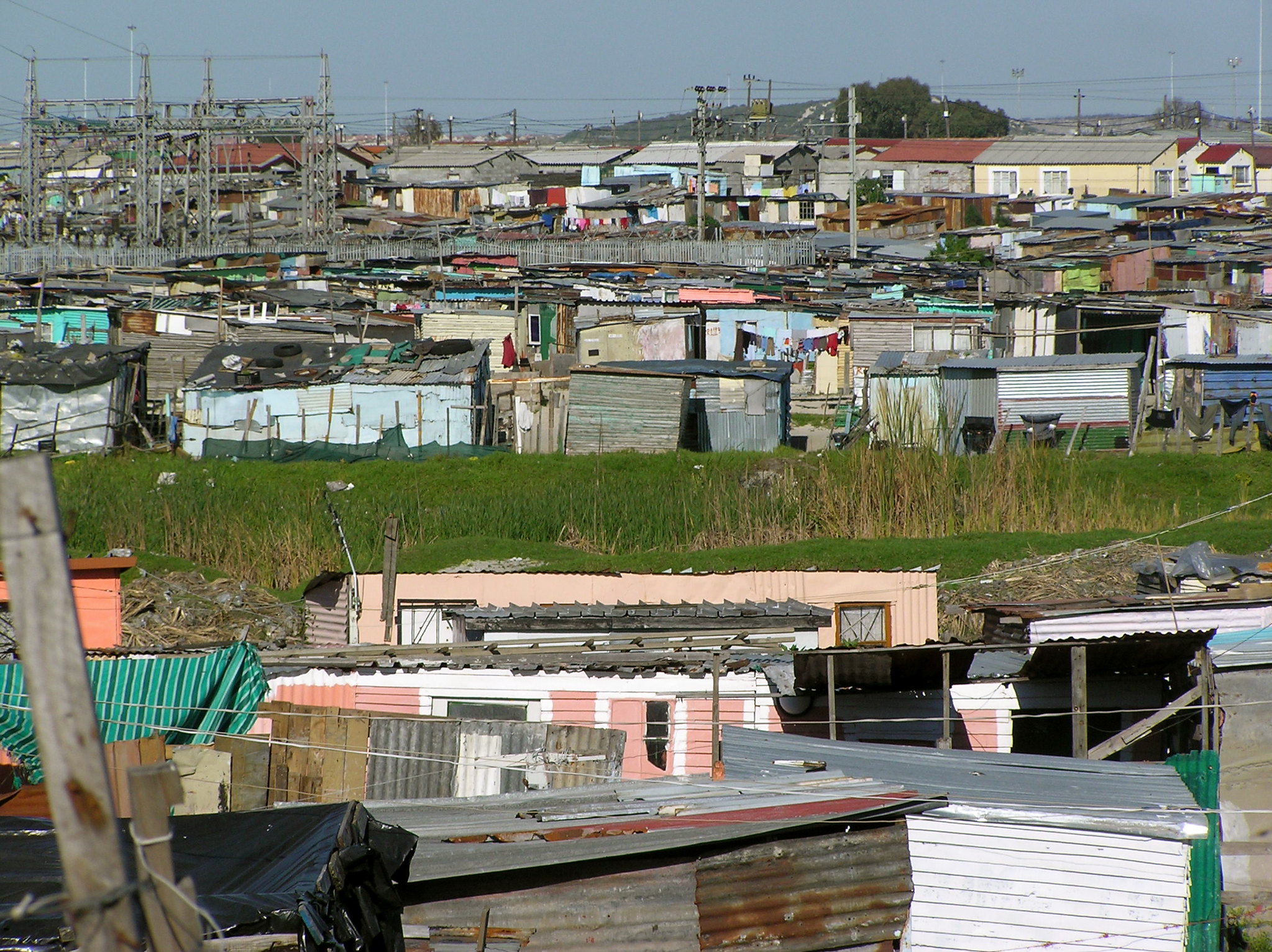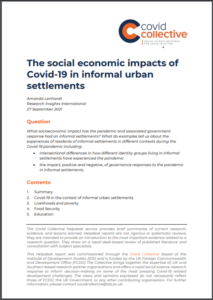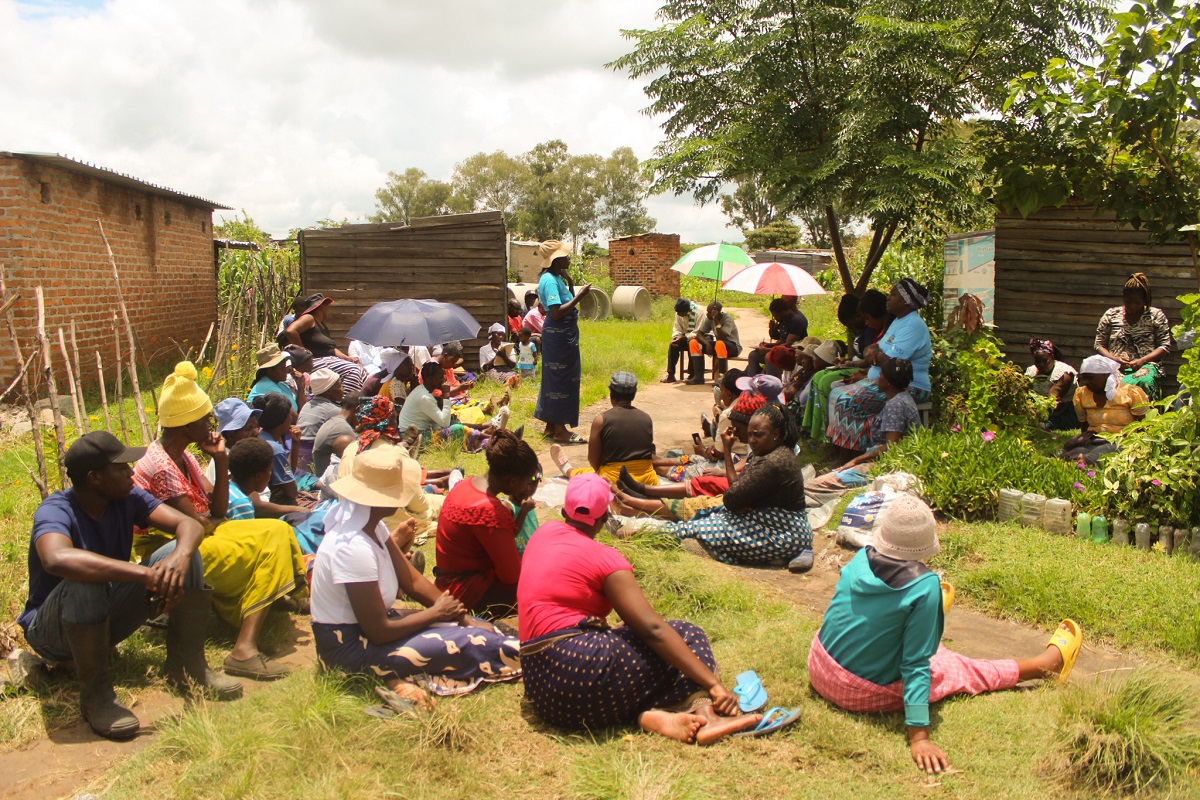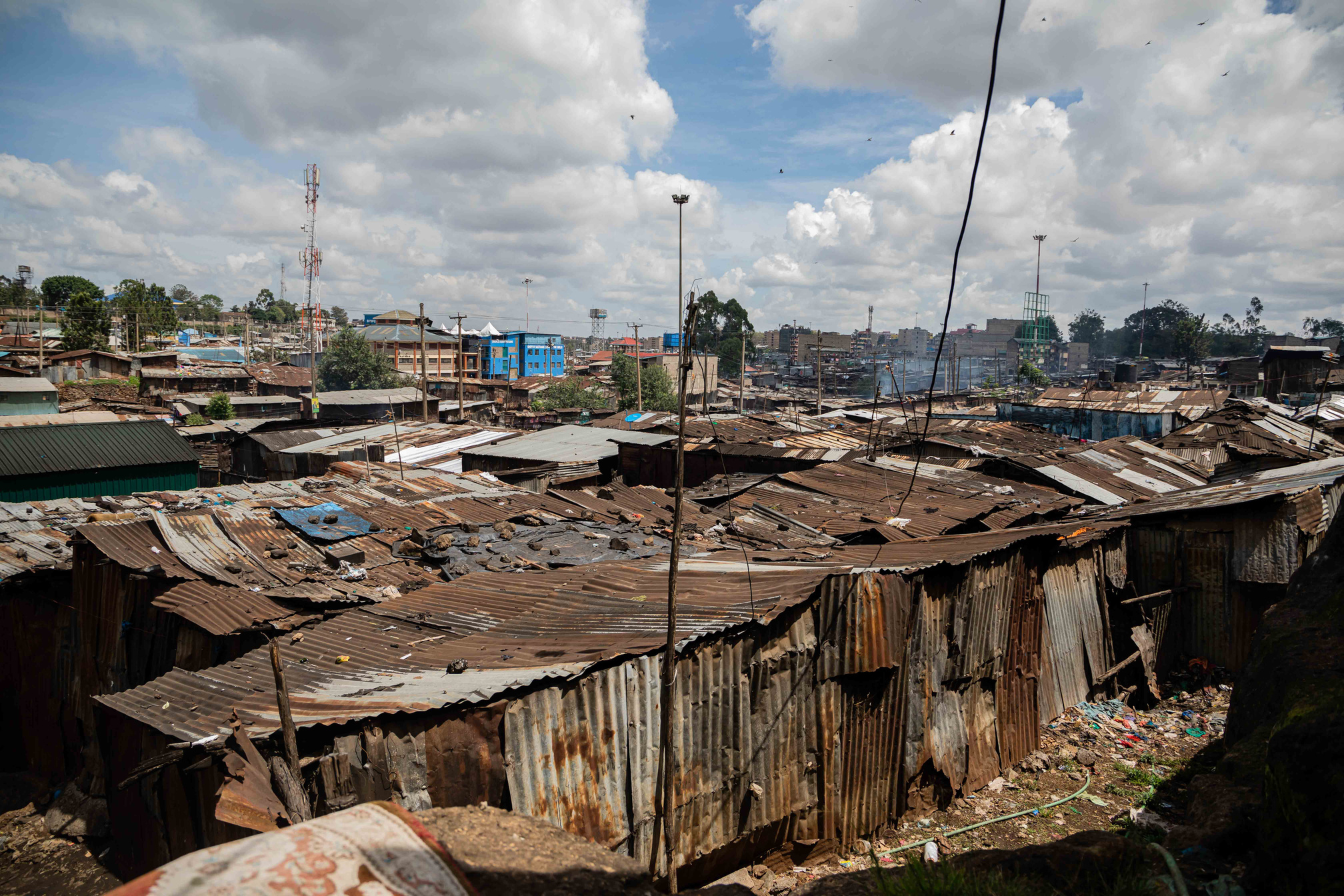In the early stages of the Covid-19 outbreak, much attention was drawn to the world’s large informal settlements where it was thought the disease could quickly spiral out of control. With their high population densities, infrastructure challenges and poor service provision, Covid-19 was likely to spread among highly exposed and inadequately protected populations in these areas. And this worry proved to be founded. Recent research has found that Covid-19 caseloads have been systematically higher in neighbourhoods classified as containing ‘slums’ than those not containing ‘slums’.
As we approach two years battling the pandemic, early concerns about the risk factors inherent in informal urban settlements have not been met with the proportionate responses needed to support these communities to cope. This is particularly true regarding non-health related risk factors in informal urban settlements such as lost livelihoods, inflated prices for basic goods, violence, and barriers to education.
- Social protection systems and cash transfer programmes have been scaled up around the world, but few have targeted informal workers in informal urban settlements whose incomes have been upended during the pandemic. Human Rights Watch’s analysis of Kenya’s US$ 100 million social protection response to Covid-19 found that less than 5% of socio-economically vulnerable families in Nairobi were receiving support from the programme.
- Measures to address food insecurity caused, or exacerbated by, Covid-19 appear to be largely focused on rural areas, either as the source of domestic food production or targeting rural food consumers. In an overview of World Bank supported programmes in 11 countries, only one explicitly mentions measures to address food insecurity in urban areas (emergency food kits in Chad) while the remainder appear largely focused on supporting food production in rural areas.
- The provision of education-related services in informal urban settlements has been shown to be a useful means of managing and coordinating pandemic and other crises responses. But much of the emphasis on maintaining education access during the pandemic has focused on infrastructure and online learning in rural and remote areas, which is critical, but overlooks barriers faced by children in urban settings.
Read the Covid Collective helpdesk paper on the social economic impacts of Covid-19 in informal urban settlements
This report briefly summarises the range of available evidence on the social economic impacts of the Covid-19 crisis in informal urban settlements and the intersectional differences in how different identity groups living in them have experienced the pandemic.
The review draws on a mixture of academic and grey literature, with some opinion pieces and blogs also included given the ongoing nature of the pandemic.
Amidst rising inequalities within cities in the lead up to the pandemic, it is anticipated that the gap between urban haves and have nots will significantly widen due to Covid-19. The ‘new poor’ predicted to emerge due to the pandemic are forecasted to be more urban, with 30% living in urban areas compared to the current rate of 20% urban poverty. The so called ‘new poor’ are more likely to be engaged in paid employment or working in small family businesses, will be more educated, and will include those working in the sectors most affected by lockdowns in urban areas. This profile of poverty differs significantly from our traditional understanding of those most at risk of poverty – namely those engaged in subsistence agriculture with little to no education and limited access to alternative livelihood opportunities. These groups are still vulnerable to impoverishment, but the leading risk factors need to be revised in the era of Covid-19 to capture the reality of those living in informal urban settlements.
We also know that certain groups in urban informal settlements are particularly exposed not only to the virus but also to the indirect effects of the economic and social upheavals caused by the pandemic. This is likely to drive further intersectional inequalities between groups within urban contexts.
- Women and girls are more exposed to the virus itself due to limited access to hygiene and space, but also to the indirect effects of lost incomes or education due to added caring responsibilities or pressures to marry to ease families’ economic pressures among other social normative factors.
- People with disabilities are similarly doubly affected by heightened health risk factors as well as reduced access to basic services and overburdened household and social resilience networks that often serve as their primary source of support.
- Older people have faced heightened fear, anxiety, and depression during Covid-19; an increased risk of violence, abuse, and neglect; added challenges to livelihood opportunities and heightened risk of impoverishment; discrimination, being denied their rights, and had the exercise of their voice has limited throughout the pandemic.
- Migrants face added barriers to accessing health services and information, are rarely targeted by social protection systems or covered by existing labour laws, and many are less well connected to local support structures.
The gulf between awareness of the challenges faced by urban informal residents and the prevalence of policies and programmes to address these challenges is vast. Pre-pandemic analyses of risk factors in informal urban settlements and newly collected evidence from different contexts are widely available to understand the unique and pressing challenges that the pandemic poses to wellbeing in informal urban settlements. In contrast, there is little evidence of targeted policies and programmes to support people living in informal urban settlements. As a result, many communities have had to rely on their own limited resources and support networks to respond to the crisis. With the pandemic still directly impacting these areas, and social and economic disruptions likely to reverberate through these communities for years to come, there is an urgent need to narrow this gulf by introducing targeted measures to support informal urban settlements to cope with the Covid-19 crisis.



